Stronger together
Canada’s pharmacy associations work together on key, critical issues affecting the profession in support of strong associations, exceptional pharmacists and healthy Canadians. This CPJ feature highlights some of the work happening at pharmacy associations across the country. In recognition of International Women’s Day on March 8, in this month’s issue, many of our Organizational Members have focused on women’s health initiatives in their provinces.
Spotlight on: Women’s Health Initiatives
Alberta Pharmacists’ Association (RxA) | rxa.ca
The Alberta Pharmacists’ Association (RxA) supports women’s health initiatives and offers online courses for Albertan pharmacists. Courses include:
Infertility —Treatment Options and Review of Medications for the Pharmacist: This presentation provides an overview of infertility treatment options available to patients, medications that are used and how the pharmacist can participate in the care and support of patients going through fertility treatments.
A Practical Approach to Managing Combined Hormonal Contraceptives (CHC): This course provides a practical approach to assessing and prescribing for patients considering or already on CHC. Dr. Nese Yuksel discusses how to initiate CHC, including choosing among the range of CHC available and considerations in different patient populations.
Visit GoPharmacist.ca for more information on these and many more courses.

Canadian Pharmacists Association (CPhA) | pharmacists.ca
The Canadian Pharmacists Association (CPhA) strongly supports empowering pharmacists to play a critical role in medication management related to contraception, medical abortion and many other areas of women’s reproductive health. We were pleased to see advances in this area in many provinces across Canada in 2019 and hope to see further spread of both scope and remuneration in 2020. CPhA has a number of tools and resources available on our website to support pharmacists in the delivery of women’s reproductive health services. Visit www.pharmacists.ca/womenshealth for webinar recordings, education opportunities, environmental scans and links to evidence-based research to support you in the provision of women’s health services for your patients.

New Brunswick Pharmacists’ Association (NBPA) | nbpharma.ca
The New Brunswick Pharmacists’ Association (NBPA) continues to focus efforts on highlighting the benefits to both patients and the overall health care system if Medicare funded pharmacists to treat women with uncomplicated urinary tract infections (UTIs). New Brunswick pharmacists can do assessments for UTIs and prescribe if necessary, but the service is not funded by Medicare when it is provided by a pharmacist. UTIs are among the top 10 reasons for ambulatory clinic visits and in the top 5 reasons for emergency department visits in Canada. New Brunswickers who cannot afford to pay the fee at the pharmacy for a UTI assessment often end up going to the emergency room (ER). Funding pharmacists to treat UTIs would improve access to care and relieve pressure on overcrowded ERs, which is a significant issue in New Brunswick.

Pharmacists’ Association of Newfoundland and Labrador (PANL) | panl.net
Women’s health has always been an important component of advocacy work from the Pharmacists’ Association of Newfoundland and Labrador (PANL). The PANL was pleased to recently be involved in a successful effort to have the Newfoundland and Labrador government provide universal coverage for Mifegymiso, which is now available at no cost to individuals throughout the province. Removing the cost barrier to medical abortion in primary care will ensure that persons living in rural and remote communities throughout Newfoundland and Labrador have more equitable access to this essential medical service. PANL is currently actively advocating for pharmacist prescribing for UTIs. It is PANL’s position that residents in the province with uncomplicated UTIs should be able to get prescriptions directly from a pharmacist instead of having to visit their doctor, walk-in clinic or emergency room.
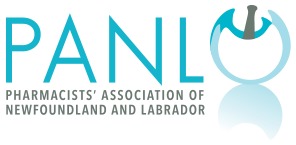
Pharmacy Association of Nova Scotia (PANS) | pans.ns.ca
The Pharmacy Association of Nova Scotia (PANS) has negotiated funding from the Province of Nova Scotia for pharmacists to assess and prescribe for hormonal birth control. Currently, there are more than 50,000 Nova Scotians who do not have a family doctor in this province and access to a prescriber for birth control is limited. Additionally, funding has been put in place for pharmacists to assess and prescribe for uncomplicated UTIs. This is a condition that, on average, women experience twice a year and is one of the top reasons they visit a hospital emergency room. These are just 2 of the many ways in which pharmacy in Nova Scotia is reducing barriers to access health care services for women across Nova Scotia.
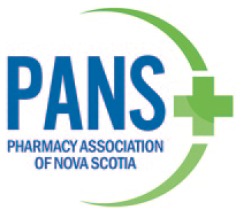
Pharmacy Association of Saskatchewan (PAS) | skpharmacists.ca
Saskatchewan residents have benefitted for years from pharmacist prescribing for self-care and minor ailments (ambulatory conditions). Since 2018, Saskatchewan women in particular have benefitted from additional services offered by pharmacists, allowing them to go to their pharmacists for health concerns such as birth control, emergency contraception, UTIs, painful periods and the human papillomavirus (HPV) vaccine. Pharmacists in Saskatchewan are leaders and entrepreneurs, and they are continually expanding community access to essential health care services, including hormone replacement therapy and chronic disease management. Visit our Fearless Pharmacy: Non-traditional pharmacy practice webpage at https://www.skpharmacists.ca/site/adv/members to learn more about Saskatchewan innovators in pharmacy. #IWD2020 #FearlessPharmacy #RethinkPharmacists
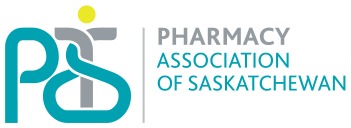
Prince Edward Island Pharmacists Association (PEIPhA) | peipharm.info
The Prince Edward Island Pharmacists Association (PEIPhA) believes that pharmacists can be part of the solution to improving access to women’s health services and has been advocating to have assessment and prescribing for uncomplicated UTIs and contraception included in those common issues pharmacists can manage. Working with the Department of Health and Wellness, as well as the College, we are hopeful that enabling legislation will be tabled and passed in the spring 2020 sitting of legislature. This will be excellent news for the women of Prince Edward Island (PEI) and has the support of the PEI Advisory Council on the Status of Women. Stay tuned!

Other highlights
Association of Faculties of Pharmacy of Canada (AFPC) | afpc.info
The Association of Faculties of Pharmacy of Canada (AFPC) is the national voice for academic pharmacy, providing leadership and resources for faculty members across Canada. About 1300 new pharmacists graduate from the 10 universities each year. AFPC’s annual Canadian Pharmacy Education and Research Conference (CPERC) brings together pharmacy educators and researchers to learn, share and network. CPERC 2020 is in Montreal, May 21-24, co-hosted by Université de Montréal and Université Laval. The program will include almost 100 mini-sessions and poster presentations on pharmacy practice research, pharmacy education and pharmaceutical science. CPERC is just prior to FIP’s Pharmaceutical Sciences World Congress.

Association québécoise des pharmaciens propriétaires (AQPP) | aqpp.qc.ca
The Association québécoise des pharmaciens propriétaires (AQPP) wants to improve the recovery rate of leftover or expired drugs in Quebec. Nearly a quarter of all households in Canada had leftover or expired drugs in 2005, according to a Statistics Canada survey. Improper disposal of medications and other health products, such as medical sharps, has potential harmful effects on the environment. Moreover, keeping medications in the home can lead to misuse, abuse and danger. The AQPP is working to include pharmaceutical products in the Quebec government’s regulation respecting the recovery and reclamation of products by enterprises to improve the recovery rate by adding the producers to the solution. This regulation aims to transfer responsibility for the management of residual materials generated by the consumption of various products to the companies that market them. This approach is called Extended Producer Responsibility (EPR).
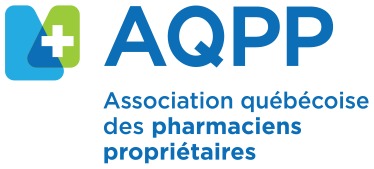
British Columbia Pharmacy Association (BCPhA) | bcpharmacy.ca
In 2020, one of the British Columbia Pharmacy Association’s (BCPhA’s) goals is to encourage patients to share stories of how their pharmacists go the extra mile. Desk cards containing a call-to-action for patients to nominate their pharmacists for a Pharmacy Excellence Award were distributed to nearly 900 pharmacies across British Columbia in December to encourage nominations. The awards will be presented at the BCPhA’s annual conference in May. Traditionally, the majority of award nominations have been initiated by health care peers. Patient-initiated nominations provide a source of stories of how pharmacists have positively affected their communities that otherwise would not be captured. The inclusion of patient-initiated nominations recognizes that patients are often the best advocates for the contributions pharmacists perform in their communities every day.

Ontario Pharmacists Association (OPA) | opatoday.com
As Ontario pharmacists ready for discussions on common ailments, the Ontario College of Pharmacists recently established a Minor Ailments Advisory Group (MAAG), comprising patient advisors, as well as experts in pharmacy, medicine, public health, health systems research and antimicrobial stewardship. As part of its mandate, the advisory group has recommended 18 minor ailments among a preliminary list of 19 that will be discussed more broadly with additional stakeholders such as professional associations, other regulators and the public. In addition to the list of common ailments, the College has recommended to the Ontario government that drug lists set out in regulation be replaced by drug categories. This would provide pharmacists with the flexibility to administer up-to-date medications, rather than waiting for these medications to be added to drug lists through regulatory changes. Visit ocpinfo.com for the list of proposed common ailments and for further information.
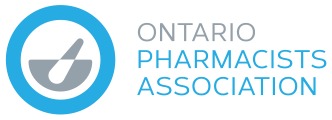
Pharmacists Manitoba | pharmacistsmb.ca
On January 8, 2020, Pharmacists Manitoba and the Manitoba government announced the launch of what is believed to be the world’s first social impact bond (SIB) dedicated to helping people quit smoking. Shoppers Drug Mart will invest $2 million into the program. Pharmacists in Manitoba will provide smoking cessation counselling, follow-up and nicotine replacement therapies. Manitoba’s Health Minister Cameron Friesen spoke highly of the role pharmacists play in our province’s health care and noted that the SIB would allow pharmacists to dedicate more time to smoking cessation counselling. The announcement marks another important step forward in Pharmacists Manitoba’s ongoing efforts to promote the value of pharmacists’ professional services.
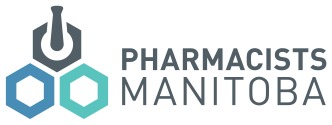
Yukon Pharmacists Association (YPA) | yukonpharmacists.ca
The Yukon Pharmacists Association (YPA) has been advocating for better medication coverage for Yukoners. The YPA collaborated with the Yukon Medical Association and lobbied the Yukon Minister of Health. Currently, there are significant gaps, inefficiencies and inequities in coverage of medications for Yukoners. For example, the Yukon has disease-based coverage for patients under 65, and some conditions such as substance use disorders are not included. Coverage criteria for inhalers do not reflect current guidelines, and some palliative care medications are not covered. The process for approval of exception drugs lacks efficiency and has the potential to cause delays in treatment. The Social Assistance Program does not have a formal process to review medication claims. We are hoping that the Yukon government will conduct a comprehensive and transparent review of those issues and resolve them promptly.



